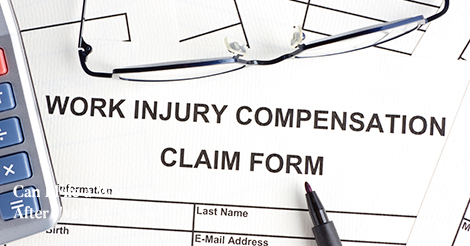A person injured in the workplace is positioned to file a workers’ compensation claim. If you have fairly recently left a position of employment, and think you suffered an injury while engaged at that job, you may wonder whether or not you can now pursue a worker’s compensation claim.
You may wonder whether you can file a work comp claim after you left your job. In general terms, the answer is yes. It is possible to pursue a workers’ comp claim after you have left your job.
The Basis for Filing a Worker’s Compensation Claim
The foundation upon which a worker’s compensation claim can be filed is if you sustained an injury in the workplace. Some injuries occur in a virtual instant. For example, if you are somehow wounded using a work-related piece of equipment, that would constitute a workplace injury.
There are also instances in which a person can develop a chronic condition during the course of employment, an injury that can prove to be compensable under the worker’s compensation laws. Carpel tunnel syndrome is an example of chronic condition, an injury that develops overtime.
The reality is that you may not know you have something like carpel tunnel syndrome until after you left a position of employment. Even though you are no longer employed at the workplace where the injury technically occurred, you may be in a position to pursue a worker’s compensation claim.
Getting Paperwork from Your Former Employer
The first step in pursuing a work comp claim after you have left a workplace is to obtain the necessary claim form and other paperwork from your former employer. You need to obtain this documentation immediately.
Taking On an Insurance Company
When you need to pursue a work comp after you have left a job, you are likely to face a standoff with a worker’s compensation insurance company. The insurer is likely to contend that the injury was not work-related.
The best way you can protect your rights and interests in this type of situation is to retain an experienced work comp attorney to represent you. You need to be proactive in obtaining representation because work comp claims can move quickly.
Obtain a Medical Evaluation
You need to also be proactive in obtaining a medical evaluation. You need to obtain an evaluation that pinpoints the injury from which you suffer. The evaluation needs to set forth that the underlying cause for the injury. It needs to conclude that your injury was work-related.
Your primary care physician may be able to undertake this evaluation. In the alternative, your primary care doctor may be able to make a referral. Keep in mind that as a claim proceeds, you will also be required to submit to an evaluation from a physician selected by the work comp insurance company.
Retain a Worker’s Compensation Lawyer
The best course you can take to protect your rights and interests when you discover a work-related injury after you have departed a position of employment is to retain the services of a skilled, experienced worker’s compensation attorney. A work comp attorney will schedule an initial consultation with you to discuss your case.
During an initial consultation with a work comp lawyer, the attorney will evaluate your case. You will be presented with possible strategies to obtain the financial compensation you need in the aftermath of being injured.
A work comp attorney will also provide answers to your questions. As a general rule, there is no fee charged for an initial consultation with a work comp lawyer.

